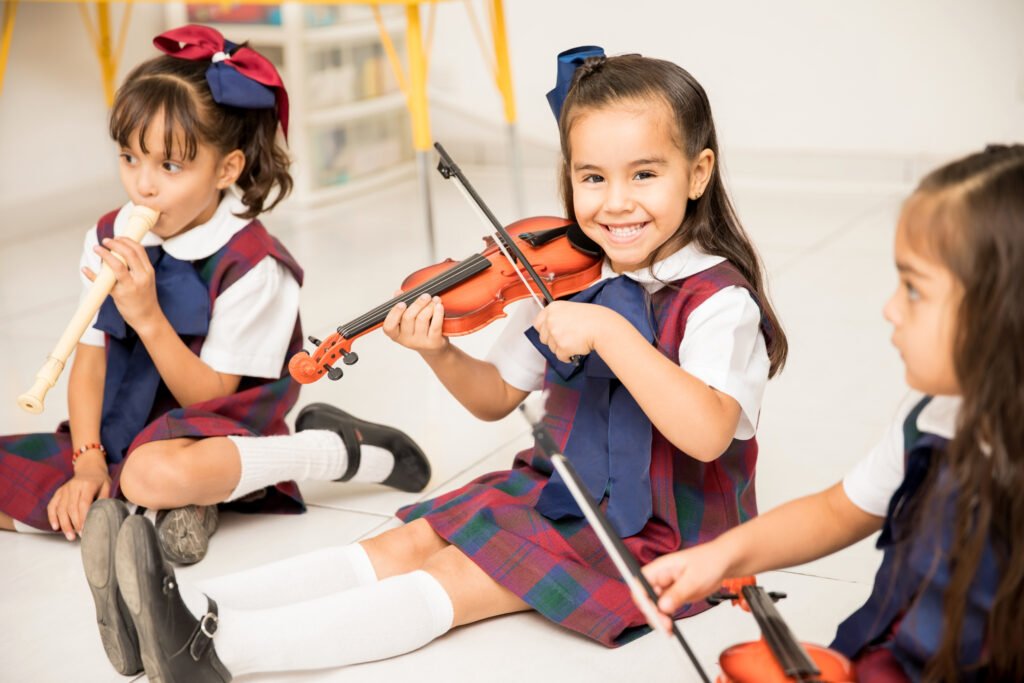Have you ever been mesmerized at how bright and beaming your child’s face looks whenever they hear their favorite music? The soothing rhythm of the musical instrument and the angelic human voices is enough to give butterflies.
Music which is the art of combining sounds, usually through instruments or voices, to create melodies, rhythms, and harmonies that express emotions and ideas is a form of art that existed far back in time. Music education is more than just teaching kids to sing songs or play instruments. It encompasses activities that develop musical skills and knowledge, including listening, performing, creating, and understanding music. This education can be in various settings, from formal school programs and private lessons to community music groups and informal family interactions.
In this article, we will examine reasons music education is so important to the development of children fostering intellectual growth, emotional well-being, social skills, and physical coordination.
Emotional Benefits of Music Education
Children sometimes struggle to articulate their feelings through words, especially complex emotions but music offers an alternative medium. Whether strumming a guitar, beating a drum, or singing a heartfelt song, they can express joy, sadness, anger, and everything. Music is therapeutic, it allows your kids to process their emotions healthily by strutting a piano or singing their favorite music they find solace in.
You can imagine your little one who performed a violin solo at the school concert for the first time, everyone clapping and screaming his name in excitement. His face lit up with so much joy and enthusiasm, this could only mean that the music performance provided a meaningful outlet for his emotions.
Social Benefits of Music Education
In music education, social bonds are bound to happen through group projects, performances, and shared musical experiences. These settings require them to collaborate and communicate effectively, teaching them the importance of teamwork, an essential skill for social interaction.
An instance is a group of children who often come together weekly for band practice. Over time, they develop a camaraderie built on their shared love of music, and the time they spend practicing and performing together all contribute to a deep and lasting relationship.
Physical Benefits of Music Education
Have you ever noticed your kid’s hands and fingers while playing an instrument? The coordination and movement of the fingers were trained to cover the right holes or press the right valves while simultaneously managing breath control. Instruments, like drums or percussion, involve larger body movements. Playing the drums, for instance, requires coordinated use of both hands and sometimes the feet. This helps develop gross motor skills, as your child must synchronize their limb movements to produce the desired rhythm.
Career Opportunities
Not all kids want to work in a tech company or be a medical doctor or a software engineer some have been so captured with the love of music that no career path ever makes sense to them than the musical career. The music industry is so vast that it offers various career opportunities such as music therapists, who use music to help people heal and cope with diverse challenges, or musicologists, who study the history and theory of music.
The skills gained through learning music such as discipline, creativity, and confidence are highly transferable and beneficial in various other careers. Thus, it enhances individual in both their professional and personal lives.










Hello my loved one I want to say that this post is amazing great written and include almost all significant infos I would like to look extra posts like this
Thank you! We’re glad you loved the article. We are here to provide our audience with great articles.